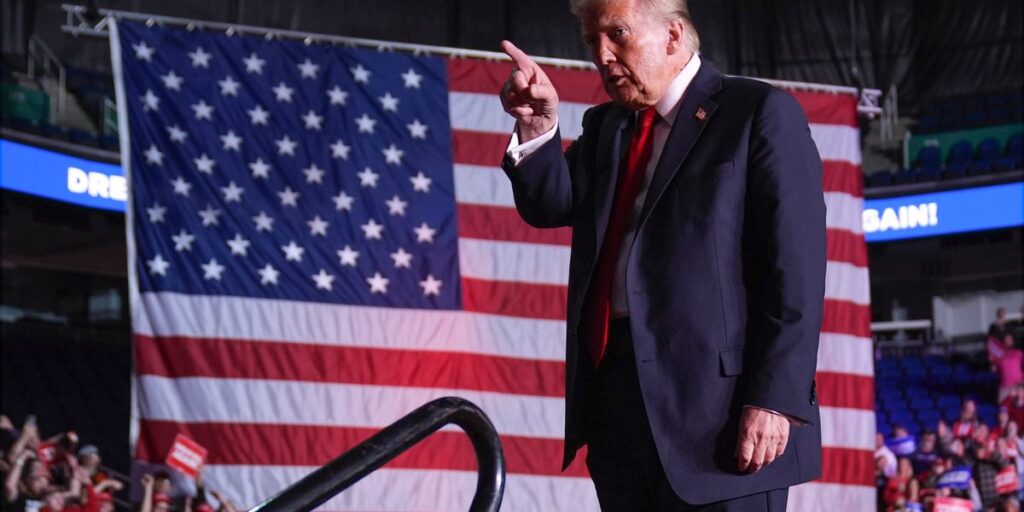Former President Donald Trump recently attracted attention during a rally in North Carolina when he endorsed a crude and sexist comment made by an attendee regarding Vice President Kamala Harris. As Trump shared his thoughts about Harris, casting doubts on her claims of having worked at McDonald’s during her college years, an audience member shouted an insinuation that Harris was involved in sex work, stating, “She worked on a corner.” The former president reacted by laughing and expressing his appreciation for the crowd’s energy, stating, “This place is amazing,” while distanced himself from the comment by suggesting it was the sentiment of the audience rather than his own.
Harris’ campaign swiftly addressed Trump’s skepticism regarding her employment at McDonald’s in Alameda, California, during the summer of 1983 while attending Howard University. This wasn’t the first time Trump has voiced doubt about Harris’s narrative; he previously questioned her work history during a campaign stop at McDonald’s in Pennsylvania, where he made a spectacle of cooking fries and serving customers. This pattern reflects a broader trend in Trump’s discourse, where he often targets Harris with insinuations and undermines her credibility.
The remarks and actions of Trump and his supporters have surfaced as part of a consistent line of sexist attacks against Harris. This trend appears not only in verbal jabs but also through various modes of public shaming. For instance, Trump once dehumanized Harris by comparing her to “a play toy” that world leaders would manipulate if she were elected. Such statements contribute to a culture of misogyny and diminish the serious qualifications and achievements of women in politics, particularly Harris, who navigates being both a woman and a woman of color in a high-profile political position.
In a recent incident prior to the rally, billboards targeting Harris were commissioned by Trump supporters in Ohio featuring an offensive and demeaning image, alongside a tagline that implied Harris was unfit for political discourse. This billboard, which suggested that Harris was preoccupied with inappropriate behavior, received significant backlash and was ultimately taken down, reflecting ongoing tensions surrounding the treatment of women in political arenas, especially those who challenge traditional power structures.
The reaction from the public and various organizations reveals widespread concern over the normalization of such misogynistic comments and tactics. Critics argue that the rhetoric employed by Trump not only targets Harris but perpetuates a harmful narrative about women in leadership roles, often reducing them to mere objects of ridicule rather than considering their policy positions and contributions to society. This portrayal of women, especially women of color, as lesser or more diminished figures remains a critical point of contention in contemporary political discourse.
In conclusion, Trump’s recent rally comments serve as both a reflection of his personal views and a larger societal trend that seeks to undermine and belittle women, particularly those in significant political roles. As the political climate continues to evolve, scrutiny of misogynistic attitudes in politics is increasingly being called into question, highlighting the importance of fostering an atmosphere where women are critiqued based on their abilities and policies rather than subjected to degrading jokes and insinuations. This situation underscores a vital need for accountability in political rhetoric and the impact it has on public perception and participation, particularly for women in leadership.

